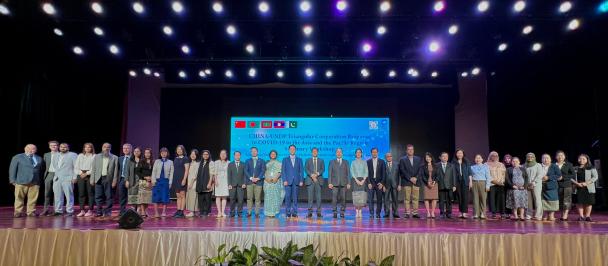With economies stumbling and unemployment soaring, UN ramps up plans for social and economic recovery alongside WHO-led health response
UN sets out COVID-19 social and economic recovery plan
April 27, 2020
New York – Without urgent responses addressing the social and economic impacts of the COVID-19 pandemic, global suffering will escalate, jeopardizing lives and livelihoods for years to come, according to a new report by the United Nations.
The warning comes as part of a UN framework for the immediate socio-economic response to COVID-19. As the UN’s lead agency on socio-economic impact and recovery, the United Nations Development Programme (UNDP) will provide the technical lead in the UN’s socio-economic recovery efforts, supporting the overall coordination role of the Resident Coordinators, with UN teams working as one across all aspects of the response.
UN teams covering 162 countries and territories will rollout this recovery plan in the next 12 to 18 months, under the leadership of UN Resident Coordinators (RC), supported by UNDP, and drawing-on all of the UN’s assets locally and globally in an integrated response.
“The longer-term social and economic impact of this crisis will be profound. That is why we are committed to leading the UN’s socio-economic response, at the UN Secretary-General’s request, in partnership with our sister UN agencies and under the leadership of the UN Resident Coordinators in the countries we serve,” said UNDP Administrator Achim Steiner.
Already we are beginning to understand the potential socio-economic impacts of this pandemic: The World Bank has warned that it could push between 40 and 60 million people into extreme poverty this year, with Sub-Saharan Africa hit hardest followed by South Asia, while the International Labour Organisation expects the equivalent of 195 million jobs lost. The World Food Programme projects that 135 million people are facing crisis levels of hunger or worse, while another 130 million are on the edge of starvation.
The UN’s global framework provides a strategy for the urgent socio-economic response, based on five critical pillars: Protecting health services and systems; social protection and basic services; protecting jobs and small and medium sized enterprises, and the most vulnerable productive actors; macroeconomic response and multilateral collaboration; and social cohesion and community resilience.

 Locations
Locations



